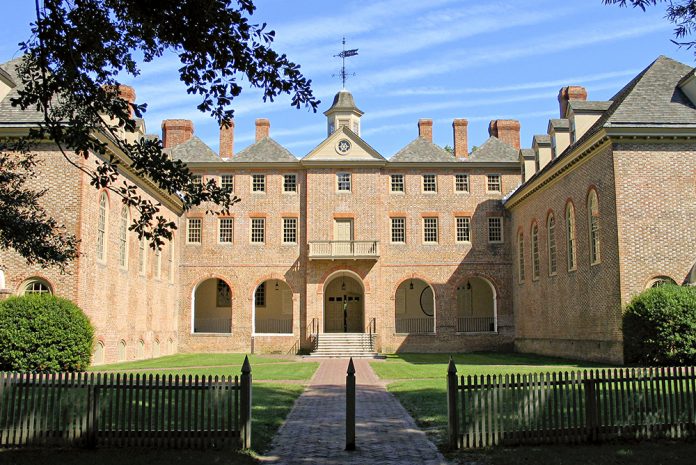Wednesday, Nov. 6, activist Bobby Gonzalez visited the College of William and Mary to discuss the intersectionality of indigenous peoples and Latin–American heritage. Gonzalez’s lecture focused on exploring the history of indigenous Latin–American people and their cultures. Gonzalez was a guest speaker of the Latin American Student Union and American Indian Student Association in celebration of National Native American Heritage Month.
“Sometimes people ask me, ‘How can you be native?’” Gonzalez said. “I explain that more than 90 percent of the native people in the Western Hemisphere reside in Latin America. There are more than 50 million indigenous people in Central and South America and within the Caribbean.”
“Sometimes people ask me, ‘How can you be native?’” Gonzalez said. “I explain that more than 90 percent of the native people in the Western Hemisphere reside in Latin America. There are more than 50 million indigenous people in Central and South America and within the Caribbean.”
Gonzalez began his lecture by addressing a common misconception that indigenous people are mainly concentrated within the United States and elaborated on the full spectrum of indigenous people and their origins. He argued that most people conceptualize indigenous people solely as the people that first inhabited the United States and indicated how this misperception erases the identities of indigenous people across the globe, especially the indigenous people of Latin America. As an example, Gonzalez shares the story of his personal ancestry, the Taino tribe.
“So who are the Taino?” Gonzalez said. “We’re the native people of Puerto Rico. We were warriors … We introduced a whole array of foods the Europeans had never seen or tasted before. We introduced them to corn, peanuts, sweet potatoes and tobacco.”
Gonzalez also emphasized the active role women played in Taino society, relative to the passive role women played in European society. He discussed how Taino women took on extensive leadership roles, contributed heavily to various sectors within their community, and were treated as more equal citizens compared to their counterparts in Western Europe.
“Unlike Christians, our creator was a woman,” Gonzalez said. “Her name was Ataberyra. Taino women were leaders — economic, spiritual and sometimes even military leaders.”
Gonzalez then shared the story of the Taino’s migration from Puerto Rico to Florida. He spoke about how the arrival of Europeans caused mass tragedy across the Caribbean region, specifically with the Taino people. Gonzalez explained how the Taino were physically harmed by the Europeans, and since many Taino men and women were lost to severe disease, he further described that for the tribe to survive, they had to flee north to modern-day Florida, where they could escape from European hostility.
“The Europeans and the Spaniards came. They had their guns, they had their swords, they have their killer dogs but what killed most of us was smallpox,” Gonzalez said. “We had lived in relative isolation for thousands of years and when they came over with smallpox and other diseases, we had no immunity. Many of us took off to Florida and some of their tribes absorbed us. So many people here [United States] may have Taino blood and not even know it.”
Gonzalez also acknowledged the contemporary global efforts of many indigenous tribes to uphold their cultures. He lauded the usage of religion, music and film as methods of heritage preservation.
All throughout Latin America people, are returning to their roots, some in different ways. All over the world, young indigenous people are preserving their history and language through music and film.”
“Many indigenous people are returning to their original ceremonies,” Gonzalez said. “All throughout Latin America people, are returning to their roots, some in different ways. All over the world, young indigenous people are preserving their history and language through music and film.”
Attendee Quinn Campagna ‘20 found the lecture enlightening, given his own personal journey exploring his heritage.
“My grandmother was the first generation on my mother’s side of the family to come,” Campagna said. “She is from Nicaragua, and my mom and her siblings very actively tried to distance themselves from Latino heritage. Me, my brothers and my cousins are very much trying to figure out what that means for us personally. This discussion gave me a lot to think about.”
Alexia Kaelber ‘21, vice president of the Latin American Student Union, remarked on how necessary these discussions are to the community here at the College. Kaelber emphasized how vital it is to acknowledge and tell the stories of those often overlooked.
“It is crucial, especially with Native American Heritage Month to celebrate these voices and center them in these discussions and especially with the intersections between these various identities.”
“The indigenous community does not get a lot of publicity, especially on this campus because the population is smaller,” Kaelber said. “It is crucial, especially with Native American Heritage Month to celebrate these voices and center them in these discussions and especially with the intersections between these various identities.”
Another attendee Monica Maher ’20, echoed how important dialogues like this were and that there should be more to follow.
“There is so much more to talk about,” Maher said. “I study linguistics, so that is always the perceptive I am going to come from, and there are hundreds of languages and stories we have not been able to connect across the Americas because there is so little we know because of how little is left. So it’s like you can pull out a few of the stories but there is still so much that has not been talked about.”

